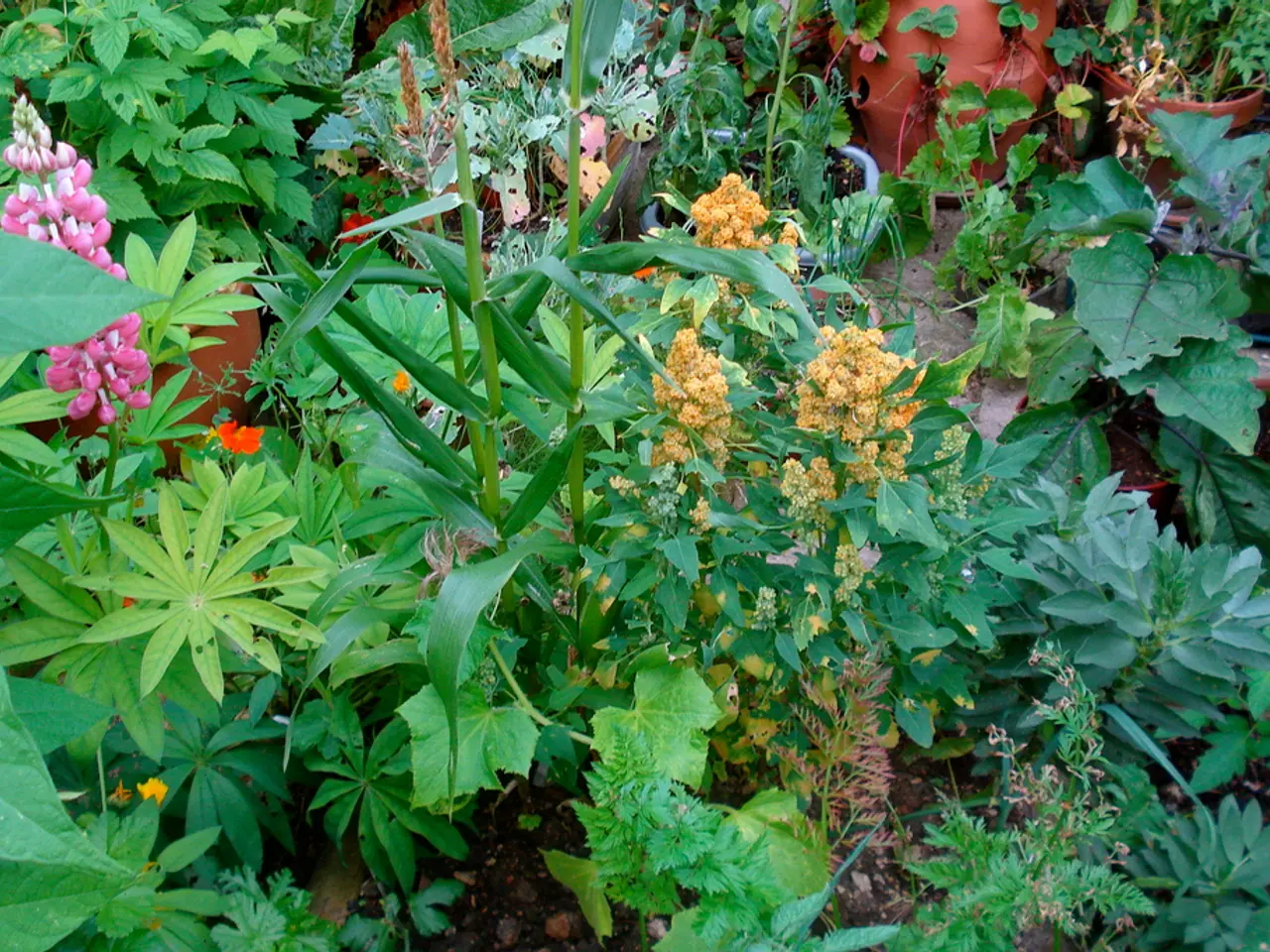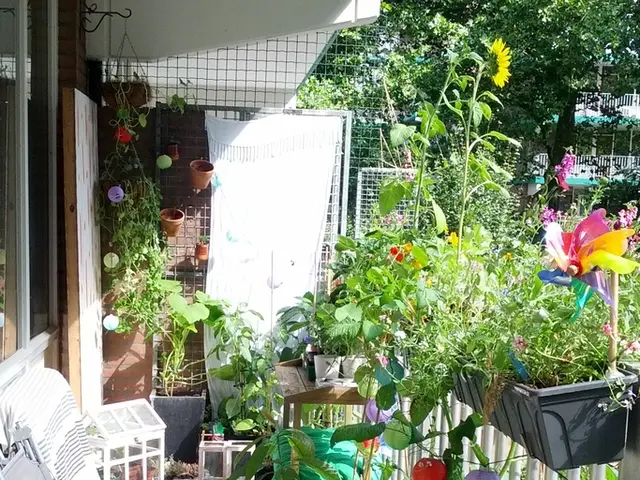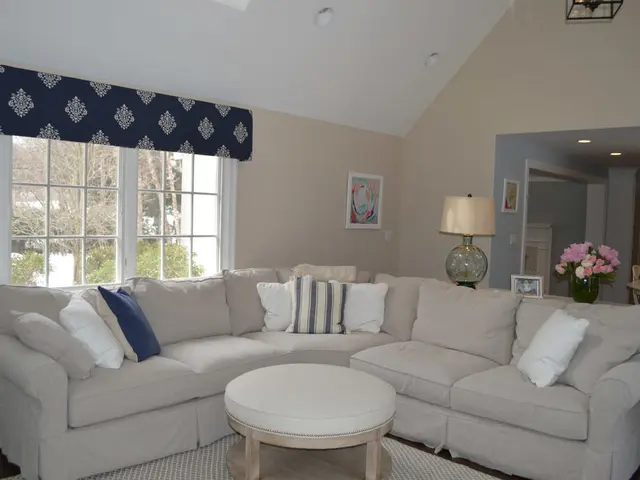Transform your garden into a serene retreat with designer-approved advice
In today's fast-paced world, finding tranquility and relaxation can be a challenge. But, by focusing on key elements, you can transform your garden into a peaceful sanctuary that nurtures your mind and body.
Abundant Greenery
Green is the most restful color for the eyes and mind, so incorporating various shades of green foliage is essential. A mix of plants, including flowering shrubs, ornamental grasses, and evergreens, creates a natural and soothing environment.
Quiet and Privacy
Minimizing noise is crucial in creating a peaceful garden. Dense evergreen hedges or acoustic fence panels can help buffer external sounds, creating an enclosed, quiet space that enhances the feeling of retreat from daily stresses.
Comfortable Seating
Including benches or comfortable chairs encourages sitting, observing, and mindfulness in the garden. Creating intimate spaces for sitting provides a sense of security and peace.
Soothing Features
Adding calming water features like fountains or small ponds provides gentle sounds that help relaxation. The sound of nature, such as birdsong and insects, is considered better than the sound of man-made disturbances.
Aromatic Plants
Planting herbs and flowers known for their calming aromas, such as lavender, chamomile, and mint, can enhance relaxation and reduce stress.
Personal Touches
Elements like soft lighting (twinkle or solar lights), garden art, or a small speaker playing soft nature sounds or peaceful music can further amplify the tranquil atmosphere.
Natural Materials
Using wood, stone, and other natural textures for paths, furniture, and decorative elements reinforces the connection with nature and promotes grounding feelings.
Decluttering and Organization
Keeping hardscape or accessory areas tidy and well-organized reduces mental clutter and fosters calm. If space is limited, well-placed planters, plants, or sculptures can draw the eye away from eyesores.
Less is More Approach
Making a mindful space in outdoor spaces is best achieved with a less is more approach to hard landscaping. Green spaces, including gardens, can improve wellbeing, mood, brainpower, and physical health.
In the urban garden designed by John Davies, birch trees help screen out overlooking neighbours and serve as a green focal point. Holly Johnston, the designer of the Bridgerton Garden, recommends using hedges within the garden, not just around the boundary. For seasonal interest, she suggests using deciduous hedges like hornbeam or beech, or evergreen yew for year-round formality.
By combining these aspects, you can transform your garden into a sanctuary that nurtures your mind and body, providing a restorative refuge where you can breathe deeply, relax, and improve your wellbeing.
- To foster a peaceful atmosphere in your garden, consider incorporating an array of plants like flowering shrubs, ornamental grasses, and evergreens.
- Dense evergreen hedges or acoustic fence panels can help reduce external noise, creating a more quiet and private space.
- Comfortable seating areas, such as benches or chairs, encourage contemplation and peace in your garden.
- Soothing features like water fountains, ponds, or calming aromas from herbs and flowers can promote deeper relaxation.
- Using natural materials for paths, furniture, and decorative elements will reinforce the connection with nature and promote grounding feelings.
- Implementing a less is more approach to hard landscaping can help maintain a mindful space in your garden, leading to improved wellbeing, mood, brainpower, and physical health.




